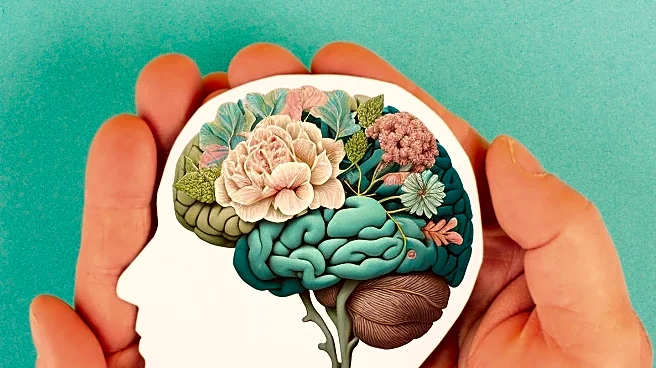What's Happening?
A new study published in the journal Intelligence reveals that many cognitive functions and personality traits peak later in life than previously thought. The research indicates that overall psychological
functioning, including reasoning, memory, and emotional intelligence, typically peaks between ages 55 and 60. Traits such as conscientiousness and emotional stability reach their highest levels around ages 65 and 75, respectively. The study suggests that moral reasoning and resistance to cognitive biases continue to improve into the 70s and 80s, challenging the notion that cognitive decline is inevitable with age.
Why It's Important?
These findings have significant implications for societal perceptions of aging and the workforce. They suggest that older adults may possess valuable cognitive and emotional strengths that are often overlooked. This could influence hiring practices and policies, encouraging more age-inclusive approaches. The study also highlights the potential for older individuals to excel in leadership roles, where judgment and decision-making are critical. By recognizing the strengths of older adults, society can better utilize their skills and experience, potentially reducing ageism and improving workplace diversity.
What's Next?
The study may prompt a reevaluation of age-related stereotypes and lead to changes in employment practices. Organizations might consider implementing assessments that focus on individual capabilities rather than age. Additionally, there could be increased advocacy for policies that support older workers, such as flexible work arrangements and continued professional development opportunities. Researchers may also explore interventions, such as diet and exercise, that can further enhance cognitive health in older adults.
Beyond the Headlines
The research challenges cultural narratives about aging, suggesting that midlife should be viewed as a period of potential growth rather than decline. It also raises ethical considerations about how society values and supports its aging population. By shifting perspectives on aging, there is an opportunity to foster a more inclusive and supportive environment for older adults, recognizing their contributions and potential.











